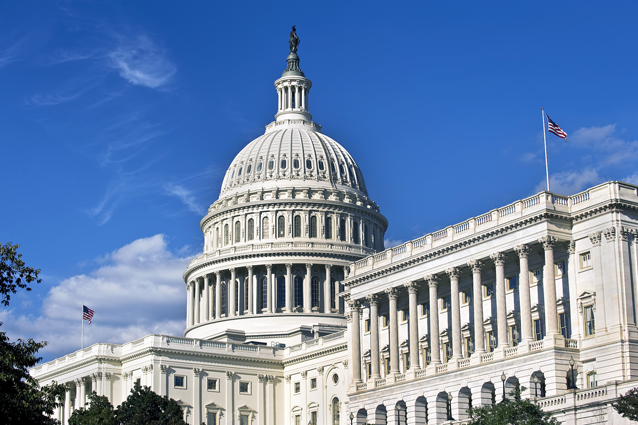Note
Three Key Outcomes of the “One Big Beautiful Bill Act” on US Manufacturing and Innovation
The budget reconciliation bill passed by the House has important implications for US technology investment, manufacturing, and innovation.

Rhodium Group’s Energy & Climate practice uses a multidisciplinary, data-driven approach to produce unique, independent insights into global energy dynamics, greenhouse gas emissions, and climate change.
We help public and private decision-makers understand what kind of climate future we are on track for, and what matters most for reducing greenhouse gas emissions—at the local, state, national, and international levels. By combining policy expertise with a suite of detailed energy-economic models, our research provides data-driven insights into the impacts of energy and climate change policy and real-world developments on greenhouse gas emissions, energy markets, economic output, and clean technology pathways.
Note
The budget reconciliation bill passed by the House has important implications for US technology investment, manufacturing, and innovation.
Note
The House Ways and Means Committee's proposed language will raise energy costs for American households by as much as 7% in 2035, stifle energy technology innovation, increase pollution, and could put significant investment at risk.
Report
In the first quarter of 2025, clean energy and transportation investment in the United States totaled $67.3 billion, a 6.9% increase from the same period in 2024 but a 3.8% decrease from the previous quarter.
Note
Since the US enacted the IRA, manufacturing has emerged as the fastest-growing segment of investment in clean energy technologies. We assess the state of key clean technology supply chains for solar, wind, batteries, and electric vehicles.
Filters:
Showing 141 – 150 of 220 total results
Note
Energy-related emissions fell by 0.66% last year, half their 2005-2016 average rate. Power sector emissions continued to decline, but emissions from transport, buildings and industry all grew, offsetting half the decline in the power sector.
Note
After three years of decline, Chinese coal demand recovered modestly – up 3.3% year-on-year. Oil demand grew by 4.6% and natural gas by nearly 16% as Beijing stepped up its air pollution control efforts.
Report
In this initial scoping paper, Jason Bordoff and John Larsen lay out the set of issues to be addressed by identifying the key design choices to be made in implementing a carbon tax.
Note
The US appears on track to meet it’s 2020 emission reduction pledge under the 2009 Copenhagen Accord but will need to significantly accelerate the current pace of emission reductions to meet it’s Paris Agreement targets.
Note
President Trump came into office promising to bring about an American coal renaissance by rolling back Obama-era environmental regulations. After one year in office, how did he do?
Note
The nine-state Regional Greenhouse Gas Initiative is likely to welcome two new members in 2018, New Jersey and Virginia. We examine the emissions and allowance price implications of expansion.
Note
As Congress rewrites the tax code, this guide shows the fate of provisions that most impact clean energy.
Note
Broad tax legislation advanced by the US Congress would impact provisions for wind, solar, electric vehicles, and other clean energy.
Note
The day after Hurricane Maria hit, 1.6 million customers in Puerto Rico and another 46,000 in U.S. Virgin Islands were without power as both US territories went completely dark.
Note
Fuel supply issues were responsible for 0.00007% of lost customer electric service hours between 2012-2016 in the US, with no clear relationship between higher system levels of coal and nuclear generation and better system performance.












